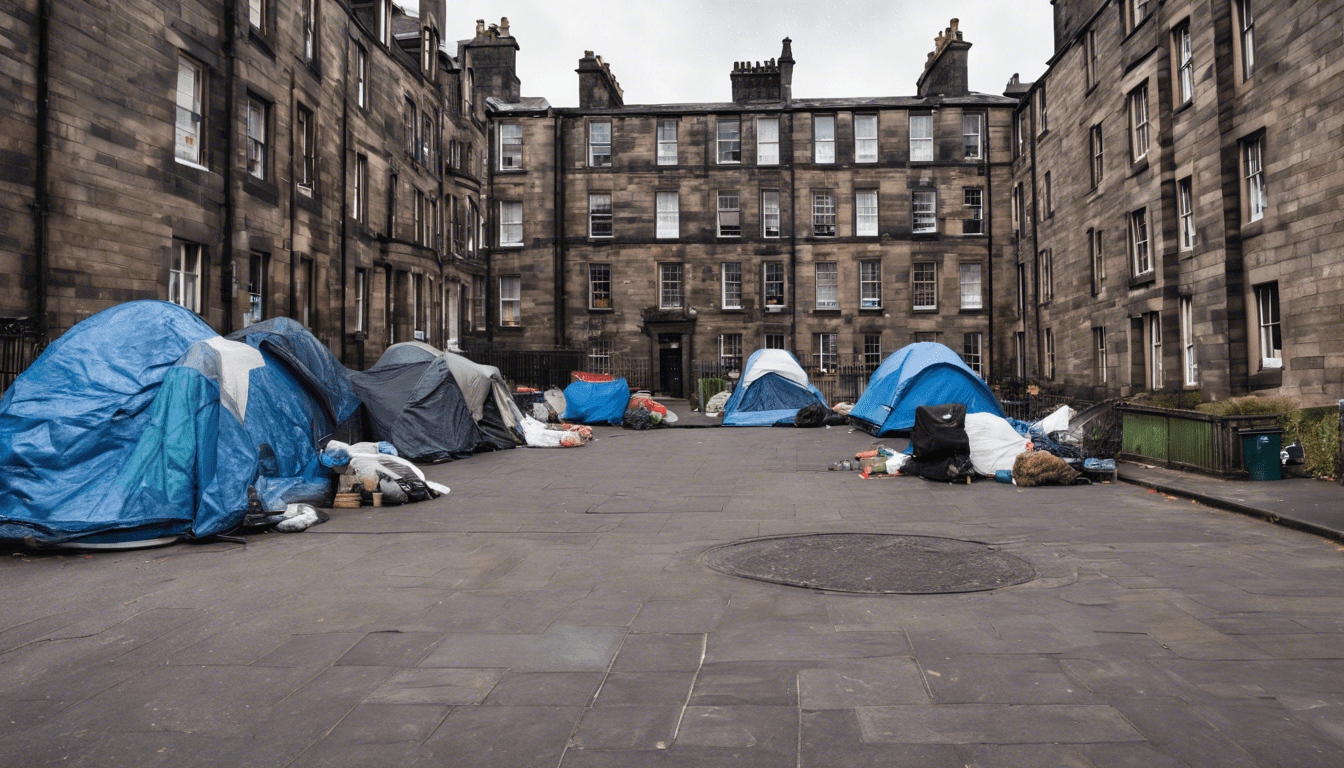In a significant move to address the ongoing homelessness crisis, the City of Edinburgh Council has announced a comprehensive plan aimed at relocating hundreds of families from unlicensed temporary accommodations by the end of November
2024. This decision responds to long-standing concerns regarding the substandard living conditions that many affected families have endured. As of now, over 700 households are lodged in 28 temporary accommodations, including unlicensed Bed and Breakfasts (B&Bs) and hotels, which do not comply with essential licensing standards for Houses in Multiple Occupation (HMO).
Since the onset of the COVID-19 pandemic, these contingencies were utilized to provide emergency housing for the escalating number of homeless individuals, causing the temporary accommodation numbers to spike from 3,570 in 2020 to more than 5,000 by
2023. However, recent legal warnings regarding the risks of funding these non-compliant operators have prompted the council to act swiftly. The immediate priority is to ensure that all families are relocated into licensed and compliant housing options, with a commitment to complete the process by early December.
Key Takeaways
- Edinburgh Council is relocating over 700 homeless families from unlicensed accommodations due to poor living conditions.
- The council’s bold action aims to comply with legal standards and prioritize housing safety by the end of December.
- This decision arises from a significant increase in temporary homelessness since the pandemic began, highlighting ongoing housing challenges.
Overview of Edinburgh Council’s Plan
The City of Edinburgh Council has recently outlined an urgent plan aimed at relocating hundreds of homeless individuals currently residing in unlawful temporary accommodations, such as unlicensed Bed and Breakfasts and hotels. This decision comes amidst growing concerns regarding the substandard living conditions faced by over 700 households across 28 such establishments, which fail to comply with the licensing standards mandated for Houses in Multiple Occupation (HMO) (Edinburgh Evening News, 2024). Initially, these accommodations were utilized as a temporary measure during the COVID-19 pandemic in response to the burgeoning housing demand. However, following legal advice indicating potential criminal liability for funding non-compliant lodging, the council is halting new social housing applications and non-essential repairs (BBC News, 2024). Instead, resources will be redirected towards enabling the availability of compliant properties, with a target to transition all affected individuals by early December
2024. This shift in strategy follows a significant rise in temporary housing usage, with figures escalating from 3,570 occupants in 2020 to over 5,000 this year, as inspections highlighted that many landlords had not met the necessary licensing obligations since the initial expansion of temporary accommodation options was initiated in March 2020 (The Scotsman, 2024).
In addressing this crisis, the council’s proactive measures aim not only to comply with legal standards but also to ensure that vulnerable populations have access to safe and appropriate housing solutions. The urgency of this initiative reflects the ongoing challenges faced by the city in managing its homelessness crisis, particularly in the wake of the pandemic.
Impact on Homeless Families and Housing Standards
As part of the Edinburgh Council’s strategy, the council is also working on engaging with local housing associations and private landlords to identify available properties that align with health and safety regulations. This partnership is crucial, as the council anticipates that relying solely on its own resources may not meet the immediate demands posed by the rising homeless population. Additionally, support services are being reassessed to provide not just housing but also necessary social support to facilitate smoother transitions for families and individuals affected by this crisis (Scottish Housing News, 2024). The initiative marks a significant shift in the council’s approach to managing homelessness, emphasizing accountability and the pressing need for sustainable housing solutions in a metropolitan area that has seen considerable strain on its resources since the pandemic. Activist groups and community leaders have also voiced their support for these actions, highlighting the importance of compliance with housing standards as a means of restoring dignity and stability to the lives of displaced families (The Herald, 2024). This collaborative effort could set a precedent for how local authorities across Scotland address similar issues, as it aligns with broader efforts to enhance living conditions within the temporary housing sector.
Please ask questions via WhatsApp, email, or direct messaging.




